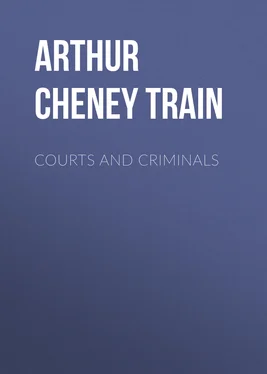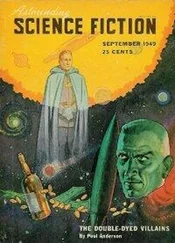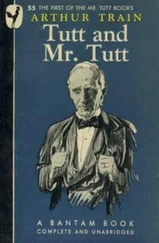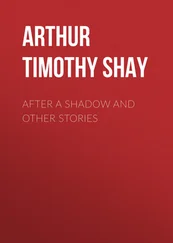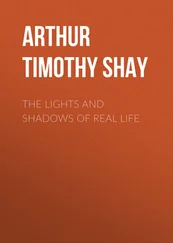Arthur Train - Courts and Criminals
Здесь есть возможность читать онлайн «Arthur Train - Courts and Criminals» — ознакомительный отрывок электронной книги совершенно бесплатно, а после прочтения отрывка купить полную версию. В некоторых случаях можно слушать аудио, скачать через торрент в формате fb2 и присутствует краткое содержание. Жанр: foreign_antique, Юриспруденция, Юриспруденция, на английском языке. Описание произведения, (предисловие) а так же отзывы посетителей доступны на портале библиотеки ЛибКат.
- Название:Courts and Criminals
- Автор:
- Жанр:
- Год:неизвестен
- ISBN:нет данных
- Рейтинг книги:4 / 5. Голосов: 1
-
Избранное:Добавить в избранное
- Отзывы:
-
Ваша оценка:
- 80
- 1
- 2
- 3
- 4
- 5
Courts and Criminals: краткое содержание, описание и аннотация
Предлагаем к чтению аннотацию, описание, краткое содержание или предисловие (зависит от того, что написал сам автор книги «Courts and Criminals»). Если вы не нашли необходимую информацию о книге — напишите в комментариях, мы постараемся отыскать её.
Courts and Criminals — читать онлайн ознакомительный отрывок
Ниже представлен текст книги, разбитый по страницам. Система сохранения места последней прочитанной страницы, позволяет с удобством читать онлайн бесплатно книгу «Courts and Criminals», без необходимости каждый раз заново искать на чём Вы остановились. Поставьте закладку, и сможете в любой момент перейти на страницу, на которой закончили чтение.
Интервал:
Закладка:
"Are you acquainted with the accused or his family?" mildly inquires the assistant prosecutor. "No—not at all," the talesman may blandly reply.
The answer, perhaps, is literally true, and yet the prosecutor may be pardoned for murmuring.
"Liar!" to himself as he sees that his memorandum concerning the juror's qualifications states that he belongs to the same "lodge" with the prisoner's uncle by marriage and carries an open account on his books with the defendant's father.
"I think we will excuse Mr. Ananias," politely remarks the prosecutor; then in an undertone he turns to his chief and mutters: "The old rascal! He would have knifed us if we'd given him the chance!" And all this time the disgruntled Mr. Ananias is wondering why, if he didn't "know the defendant or his family," he was not accepted as a juror.
Of course, every district attorney has, or should have, information as to each talesman's actual capabilities as a juror and something of a record as to how he has acted under fire. If he is a member of the "special" panel, it is easy to find out whether he has ever acquitted or convicted in any cause celebre, and if he has acquitted any plainly guilty defendant in the past it is not likely that his services will be required. If, however, he has convicted in such a case the district attorney may try to lure the other side into accepting him by making it appear that he himself is doubtful as to the juror's desirability. Sometimes persons accused of crime themselves, and actually under indictment, find their way onto the panels, and more than one ex-convict has appeared there in some inexplicable fashion. But to find them out may well require a double shift of men working day and night for a month before the case is called, and what may appear to be the most trivial fact thus discovered may in the end prove the decisive argument for or against accepting the juror.
Panel after panel may be exhausted before a jury in a great murder trial has been selected, for each side in addition to its challenges for "cause" or "bias" has thirty 1 1 In the State of New York.
peremptory ones which it may exercise arbitrarily. If the writer's recollection is not at fault, the large original panel drawn in the first Molineux trial was used up and several others had to be drawn until eight hundred talesmen had been interrogated before the jury was finally selected. It is usual to examine at least fifty in the ordinary murder case before a jury is secured.
It may seem to the reader that this scrutiny of talesmen is not strictly preparation for the trial, but, in fact, it is fully as important as getting ready the facts themselves; for a poor jury, either from ignorance or prejudice, will acquit on the same facts which will lead a sound jury to convict. A famous prosecutor used to say, "Get your jury—the case will take care of itself."
But as the examination of the panel and the opening address come last in point of chronology it will be well to begin at the beginning and see what the labors of the prosecutor are in the initial stages of preparation. Let us take, for example, some notorious case, where an unfortunate victim has died from the effects of a poisoned pill or draught of medicine, or has been found dead in his room with a revolver bullet in his heart. Some time before the matter has come into the hands of the prosecutor, the press and the police have generally been doing more or less (usually less) effective work upon the case. The yellow journals have evolved some theory of who is the culprit and have loosed their respective reporters and "special criminologists" upon him. Each has its own idea and its own methods—often unscrupulous. And each has its own particular victim upon whom it intends to fasten the blame. Heaven save his reputation! Many an innocent man has been ruined for life through the efforts of a newspaper "to make a case," and, of course, the same thing, though happily in a lesser degree, is true of the police and of some prosecutors as well.
In every great criminal case there are always four different and frequently antagonistic elements engaged in the work of detection and prosecution—first, the police; second, the district attorney; third, the press; and, lastly, the personal friends and family of the deceased or injured party. Each for its own ends—be it professional pride, personal glorification, hard cash, or revenge—is equally anxious to find the evidence and establish a case. Of course, the police are the first ones notified of the commission of a crime, but as it is now almost universally their duty to inform at once the coroner and also the district attorney thereof, a tripartite race for glory frequently results which adds nothing to the dignity of the administration of criminal justice.
The coroner is at best no more than an appendix to the legal anatomy, and frequently he is a disease. The spectacle of a medical man of small learning and less English trying to preside over a court of first instance is enough to make the accused himself chuckle for joy.
Not long ago the coroners of New York discovered that, owing to the fact that the district attorney or his representatives generally arrived first at the scene of any crime, there was nothing left for the "medicos" to do, for the district attorney would thereupon submit the matter at once to the grand jury instead of going through the formality of a hearing in the coroner's court. The legal medicine men felt aggrieved, and determined to be such early birds that no worm should escape them. Accordingly, the next time one of them was notified of a homicide he raced his horse down Madison Avenue at such speed that he collided with a trolley car and broke his leg.
Another complained to the district attorney that the assistants of the latter, who had arrived at the scene of an asphyxiation before him, had bungled everything.
"Ach, dose young men!" he exclaimed, wringing his hands—"Dose young men, dey come here and dey opened der vindow and let out der gas and all mine evidence esgaped."
It is said that this interesting personage once instructed his jury to find that "the diseased came to his death from an ulster on the stomach."
These anecdotes are, perhaps, what judges would call obiter dicta, yet the coroner's court has more than once been utilized as a field in the actual preparation of a criminal case. When Roland B. Molineux was first suspected of having caused the death of Mrs. Adams by sending the famous poisoned package of patent medicine to Harry Cornish through the mails, the assistant district attorney summoned him as a witness to the coroner's court and attempted to get from him in this way a statement which Molineux would otherwise have refused to make.
When all the first hullabaloo is over and the accused is under arrest and safely locked up, it is usually found that the police have merely run down the obvious witnesses and made a prima facie case. All the finer work remains to be done either by the district attorney himself or by the detective bureau working under his immediate direction or in harmony with him. Little order has been observed in the securing of evidence. Every one is a fish who runs into the net of the police, and all is grist that comes to their mill. The district attorney sends for the officers who have worked upon the case and for the captain or inspector who has directed their efforts, takes all the papers and tabulates all their information. His practiced eye shows him at once that a large part is valueless, much is contradictory, and all needs careful elaboration. A winnowing process occurs then and there; and the officers probably receive a "special detail" from headquarters and thereafter take their orders from the prosecutor himself. The detective bureau is called in and arrangements made for the running down of particular clues. Then he will take off his coat, clear his desk, and get down to work.
Читать дальшеИнтервал:
Закладка:
Похожие книги на «Courts and Criminals»
Представляем Вашему вниманию похожие книги на «Courts and Criminals» списком для выбора. Мы отобрали схожую по названию и смыслу литературу в надежде предоставить читателям больше вариантов отыскать новые, интересные, ещё непрочитанные произведения.
Обсуждение, отзывы о книге «Courts and Criminals» и просто собственные мнения читателей. Оставьте ваши комментарии, напишите, что Вы думаете о произведении, его смысле или главных героях. Укажите что конкретно понравилось, а что нет, и почему Вы так считаете.
